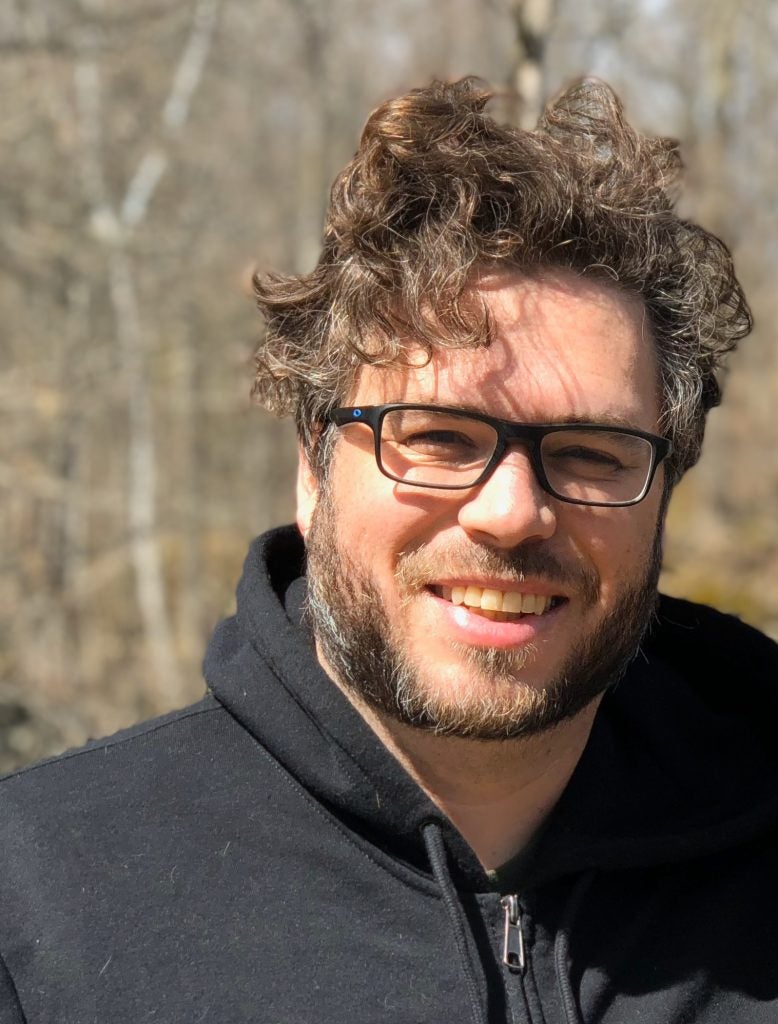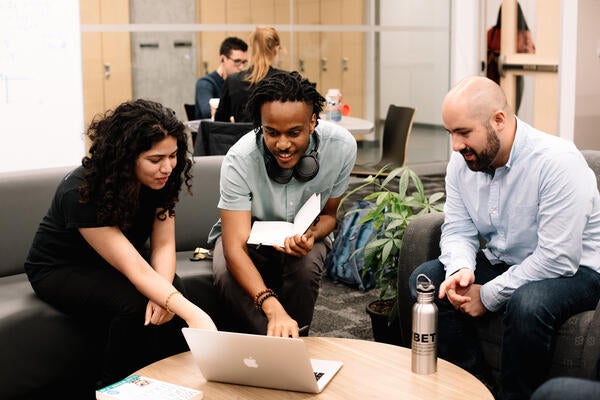
Meet Concept’s aspiring team: Cauchy Analytics
Winner of Concept’s $5K grant competition introduces a hands-free and non-invasive device to help doctors get real-time imaging of the heart in ICUs

Winner of Concept’s $5K grant competition introduces a hands-free and non-invasive device to help doctors get real-time imaging of the heart in ICUs
By Angelica Marie Sanchez University Relations
James Lowman
PhD candidate, Faculty of Engineering
> Founder, Cauchy Analytics
> Concept
Infections can be a serious health issue. Early detection and information is key to help doctors determine the medical treatment that best fits the patient. However, evaluating the effectiveness of treatment becomes difficult when doctors are unable to get continuous imaging of the heart in real-time to monitor the blood flow and pressure in a patient.
“When a patient has an infection, they are taken to the hospital intensive care unit (ICU) where doctors will do a procedure called cardiac hemodynamics to determine if blood flow out of the heart is adequate,” says James Lowman, a PhD candidate in Chemical Engineering and Applied Mathematics.
When a patient has an abnormal blood flow the doctors will need to do an ultrasound to see the inside of the patient’s heart. Unless there is a doctor trained as an echocardiograph technician, the hospital will need to call another doctor or relocate the patient, which in turn, will take a couple of hours and can cause further challenges.
“The important part is not what is happening instantly but what is happening over time,” Lowman says. “Is it getting worse or is it getting better – these trends need to be tracked.”
Lowman addresses these challenges by developing the idea of Cauchy Analytics, a device that combines an ultrasound, machine learning and computational fluid dynamics to continuously measure the blood flow and pressure directly in the heart.
“Getting an ultrasound is not easy but it is not an impossible thing to do if you have enough training,” Lowman says. “It is all about the fine motor skills in general to be able to rotate and move the probe to see the heart from different directions. It is not an easy problem, but it is a solvable one with machine learning.”
Echocardiograph technicians operate an ultrasound manually by moving the probe directly against the patient’s body to get the information needed from the heart. Lowman and his team want to challenge this by developing Cauchy Analytics as a hands-free device that is automated and remote, but still produces real-time, non-invasive, continuous monitoring system for cardiac hemodynamics in hospital intensive care units.
“It has been my life trying to figure out how fluid works by creating these giant mathematical models and then solving them on computers,” Lowman says. “We are hoping that using an automated ultrasound helps us get a good view of the heart. Enough that we can extrapolate the information and feed it into the model to tell us the data that doctors and nurses need.”
Lowman’s destiny as an entrepreneur began remotely while tutoring Kebert Joseph, a mathematician and entrepreneur in Boston. After discussing his idea with Joseph, Lowman quickly realized that a cross collaboration between different academic backgrounds will help solidify his idea into a startup business.
Joseph was able to bridge the connection with their co-founder Rakshit Shetty, a critical care physician. Dr. Shetty provides a first-hand perspective of some of the challenges that doctors experience in the medical field and knows a non-invasive real-time device would help to properly monitor his patient’s hearts in the ICU.
The multidisciplinary idea of an automated device allows Lowman to leverage his degree in chemical engineering and the University’s resources to create the foundation of Cauchy Analytics.
Lowman knew the Concept $5K pitch competition was the perfect opportunity for his team to improve their pitch experience before connecting with potential investors. He praises Velocity and Concept’s reputable panel of judges for providing critical feedback to help validate their ideas throughout the competition.
“Creating a successful startup is a big undertaking. Financial support combined with some expert scrutiny can help student teams at an early stage, that’s why we created the $5K competition,” says John Dick, director of Velocity Campus. “Win or lose, participating teams obtain feedback to improve their ideas, and many go on to participate in the Cornerstone program for further expert advice and support.”
The Winter Concept $5K winners also included Moonlight Haptics, Retinex, and Tulay. The Cauchy Analytics team will be using the $5,000 award money to apply for the two patents they need to have intellectual ownership over the software, hardware, and idea of Cauchy Analytics.
“This is an ecosystem that I do not just want to be a part of it, but I want to see it flourish,” Lowman says. “I really do like this area that we are going to be housing Cauchy Analytics here in Waterloo for that exact reason that it has an incredible talent pool.”
Applications for the spring 2022 Concept $5K pitch competition open on May 15. Waterloo students with innovative solutions and a high potential business idea are encouraged to apply.
Entrepreneurship-related events and programs are some of the most popular among students with close to 2,000 attendees last term alone. Explore all that Concept — Velocity’s experiential innovation hub at Waterloo — has to offer from student creator spaces, intro learning sessions, pitch competitions, one-on-one coaching and more.

Read more
The microsite supports a wide range of students, faculty, staff and alumni looking to navigate the University's more than 45 entrepreneurship programs

Read more
MedAtlas is creating a digital solution to make fertility care in Africa more accessible

Read more
Lunaria helps organizations create workplaces where people of all identities can flourish
The University of Waterloo acknowledges that much of our work takes place on the traditional territory of the Neutral, Anishinaabeg, and Haudenosaunee peoples. Our main campus is situated on the Haldimand Tract, the land granted to the Six Nations that includes six miles on each side of the Grand River. Our active work toward reconciliation takes place across our campuses through research, learning, teaching, and community building, and is co-ordinated within the Office of Indigenous Relations.